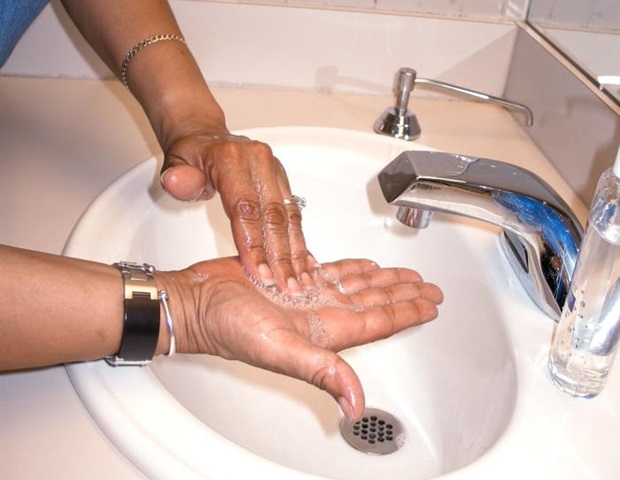Health
Soap Shortages Threaten Global Hand Hygiene Efforts

A systematic review published in the open access journal BMJ Global Health reveals that soap shortages are a significant barrier to effective hand hygiene in community spaces. This finding underscores the challenges faced in curbing the spread of infections in households, schools, and public areas. The research highlights that while soap availability is a critical physical resource, a lack of motivation among individuals to prioritize hand hygiene also contributes to inadequate practices.
The review identified several key barriers, including limited availability of soap and the absence of habitual handwashing practices. Conversely, enabling factors aligned with motivation, such as habitual practice and perceived health risks, were noted. A further review indicated that many initiatives aimed at improving handwashing often fail to address these barriers or consider essential resources like soap, water, and proper handwashing facilities.
“If settings do not already have these critical hand hygiene components in the environment, interventions that seek to improve hand hygiene only through motivation, social pressure, or by increasing knowledge should be reconsidered,” the authors concluded.
Global Hand Hygiene Guidelines and Current Challenges
These systematic reviews are part of a suite of five studies that have informed upcoming guidelines on hand hygiene from the World Health Organization (WHO) and UNICEF. The guidelines are set to be published on October 15, 2024, coinciding with Global Handwashing Day. The revisions were prompted by inconsistencies and a lack of robust evidence supporting current handwashing recommendations worldwide.
The reviews focused on various aspects of hand hygiene, including methods to effectively remove pathogens, minimum material requirements, and the effectiveness of government measures. Most studies primarily assessed the capacity to reduce bacteria, yet only 4% examined enveloped viruses such as influenza and coronaviruses, highlighting a significant gap in understanding the efficacy of hand hygiene against a broader range of pathogens.
Joanna Esteves Mills from the WHO’s Water, Sanitation, Hygiene and Health Unit emphasized the importance of hand hygiene, stating that it not only protects individual health but also strengthens community resilience. By reducing the burden on health systems, effective hand hygiene can save resources needed for other health priorities and help curb the spread of antimicrobial resistance.
Despite international recognition of hand hygiene’s importance, progress has not kept pace with political commitments. Between 2015 and 2024, approximately 1.6 billion people gained access to basic handwashing facilities. Yet, by 2024, 1.7 billion people still lacked facilities with soap and water at home, while 611 million had no handwashing facility at all.
Achieving universal access to hand hygiene by 2030—a Sustainable Development Goal—requires a substantial increase in progress rates. Specifically, it would necessitate a doubling of current efforts, with an eleven-fold increase in least developed countries and an eight-fold increase in fragile contexts. Meanwhile, approximately 740,000 people die annually from diarrhoea or acute respiratory infections that could be prevented through proper hand hygiene practices.
Core Principles for Effective Hand Hygiene
The findings from the systematic reviews point to three core principles for enhancing hand hygiene efforts. First, access to soap and water, or alcohol-based sanitizers, should be prioritized by governments as a fundamental requirement. Second, public education is essential; individuals must understand why, when, and how to wash their hands effectively. Finally, creating a supportive physical and social environment is crucial for encouraging sustained hand hygiene practices.
Joanna Esteves Mills noted the cyclical pattern of mobilization during disease outbreaks, followed by budget cuts and diminished political attention afterward. To break this cycle, governments must strengthen systems that incorporate hand hygiene into broader health initiatives.
“Most importantly, political leadership requires sufficient investment to deliver change,” she stated. Although hand hygiene interventions are cost-effective and relatively straightforward, they are not always low-cost. Investments in water supply infrastructure are particularly vital. Governments should embed hand hygiene financing within annual health budgets rather than relying solely on emergency funds.
In conclusion, the systematic reviews highlight that addressing the barriers to hand hygiene is essential for improving public health outcomes globally. Ensuring access to necessary resources, fostering motivation, and creating supportive environments can significantly enhance hand hygiene practices and ultimately reduce the incidence of preventable diseases.
-

 Health3 months ago
Health3 months agoNeurologist Warns Excessive Use of Supplements Can Harm Brain
-

 Health3 months ago
Health3 months agoFiona Phillips’ Husband Shares Heartfelt Update on Her Alzheimer’s Journey
-

 Science1 month ago
Science1 month agoBrian Cox Addresses Claims of Alien Probe in 3I/ATLAS Discovery
-

 Science1 month ago
Science1 month agoNASA Investigates Unusual Comet 3I/ATLAS; New Findings Emerge
-

 Science1 month ago
Science1 month agoScientists Examine 3I/ATLAS: Alien Artifact or Cosmic Oddity?
-

 Science1 month ago
Science1 month agoNASA Investigates Speedy Object 3I/ATLAS, Sparking Speculation
-

 Entertainment5 months ago
Entertainment5 months agoKerry Katona Discusses Future Baby Plans and Brian McFadden’s Wedding
-

 Entertainment4 months ago
Entertainment4 months agoEmmerdale Faces Tension as Dylan and April’s Lives Hang in the Balance
-

 World3 months ago
World3 months agoCole Palmer’s Cryptic Message to Kobbie Mainoo Following Loan Talks
-

 Science1 month ago
Science1 month agoNASA Scientists Explore Origins of 3I/ATLAS, a Fast-Moving Visitor
-

 Entertainment2 months ago
Entertainment2 months agoLewis Cope Addresses Accusations of Dance Training Advantage
-

 Entertainment3 months ago
Entertainment3 months agoMajor Cast Changes at Coronation Street: Exits and Returns in 2025









